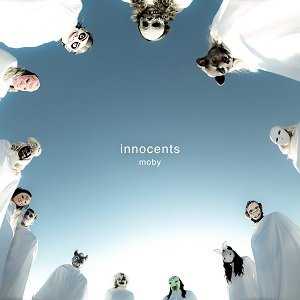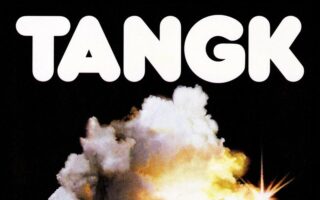 ‘Innocents‘ is Richard Melville Hall’s eleventh studio album in a career that first had him hitting the limelight as a solo artist with the dance classic ‘Go!‘ back in 1990; the former multi-instrumentalist-punk morphing into a techno producing DJ and gun for hire, who not only released a steady output of his own albums throughout the 1990s, but remixed tracks for a number of other leading artists, including The Prodigy, Smashing Pumpkins and Orbital.
‘Innocents‘ is Richard Melville Hall’s eleventh studio album in a career that first had him hitting the limelight as a solo artist with the dance classic ‘Go!‘ back in 1990; the former multi-instrumentalist-punk morphing into a techno producing DJ and gun for hire, who not only released a steady output of his own albums throughout the 1990s, but remixed tracks for a number of other leading artists, including The Prodigy, Smashing Pumpkins and Orbital.
Of course – as the world and its mother knows – Moby really went stratospheric with 1999’s ‘Play‘, which was everywhere at the start of the millennium, containing a whole host of tracks that not only graced the upper echelons of the charts in all corners of the globe, but also popped up in car adverts, nature programs and hard hitting documentaries for what seemed like forever.
No-one seemed without a copy, and the mild mannered, unassuming vegan suddenly found himself with a level of fame that went way beyond his previous cult, slightly word of mouth, left-field status.
Subsequent releases have achieved comparative success, but have almost appeared, from the outside looking in, a little like he has been chasing his tail, quite unsure where to go, and at odds as to whether to continue with a winning formula or veer off in a totally different direction.
Album opener ‘Everything Rises‘ is splendidly filmic, layered in wonderfully melancholic strings and plucked eastern leaning ticks which melt with feather light organ sounds and suitably hazy hip-hop beats dusted lightly into the background.
‘The Perfect Life‘, a collaboration with The Flaming Lips‘ Wayne Coyne, takes a bit of getting used to. Vocally, the presence of Coyne is a perfect foil for Moby and, in the video, the two instigate some form of carnival-like shindig on a high rise roof, whilst dressed as extras from The Three Amigos.
It opens, in typical Moby style, with a rolling blues piano riff, simple drum beats and something like a mandolin rippling in the background, before Coyne gushes in, amidst a delicately balanced layered choir, followed by intermittent vocals which peck boyishly away across the instrumentation, and don’t whole heartedly reveal whether or not they are a tightly packed dual combination of Moby and Coyne’s voices, singing in unison.
By the same token ‘In a Lonely Night‘ (with Mark Lanegan) is exquisite, simple and poignant. Lanegan’s warm thousand-fag growl beats an almost lullaby soft path of sadness across Moby’s minimal, slowly building landscape to cuddle the brain like a blanket, sounding like what would happen if Tom Waits collaborated with Ennio Morricone and Finnish ambient isolationist Biosphere.
‘Long Time‘ wouldn’t be amiss nestling somewhere on Leftfield‘s seminal 1995 album ‘Leftism‘; an almost dancey little ditty that could’ve been designed specifically for the 3am raver, but also the armchair contemplator. Built upon the foundations of a steady beat sub-frame, over which a light reconstituted refrain hovers, the track weaves subtle bass sounds, strings, curving walls of clipped drones and squelching patterns, to be lightly fringed by little tabla shavings and odd keyboard twinkles.
Tunes to avoid on this record are few and far between. One of the prime candidates is ‘Don’t Love Me‘, featuring regular touring vocalist Imyang Bassey. It’s a dark, soulful little number, which sounds a little like it was an off cut from ‘Play’, but does nothing to ignite the furnaces.
The same goes for closing track ‘Dogs‘, whose main problems are created by the sappy lyrics, which let down Moby’s vocal work, and cheapen a progressively luscious soundscape. If this tune had been left as an instrumental, it may well have been one of the best on the album.
On the whole though, this is a beautifully emotive record, pitched perfectly for those imposing long winter nights.



